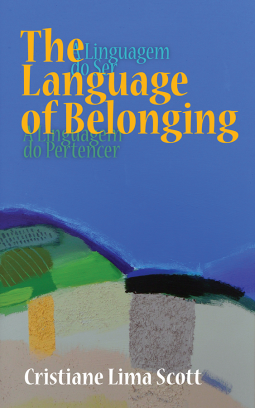
The Language of Belonging
by Cristiane Lima Scott
This title was previously available on NetGalley and is now archived.
Send NetGalley books directly to your Kindle or Kindle app
1
To read on a Kindle or Kindle app, please add kindle@netgalley.com as an approved email address to receive files in your Amazon account. Click here for step-by-step instructions.
2
Also find your Kindle email address within your Amazon account, and enter it here.
Pub Date 1 May 2016 | Archive Date 31 Oct 2018
Description
A Note From the Publisher
Cristiane has been writing fiction since she discovered it as a way to explore real life through fiction when she was 15 years old. The Language of Belonging is her second novel. Her first book, Todos os Rios se Dirigem Para o Mar, was published in Portuguese only.
Cristiane was born in the northeast of Brazil. At 13, she started to work as a pre-school teacher in her village’s public school. The experiences she had with her students and their families during the following 13 years inspired her to create characters such as “Elena” and “Cecilia’s Mother.” At 18, she was accepted at the Universidade Estadual de Alagoas as a Portuguese, Literature, and English student. At 26, she went to the United States with intent to improve her English. She met her husband and almost a year later they married. They have one daughter. She resides in New England with her family.
Advance Praise
“Compelling, and extremely timely.” Katie Quirk, author of A Girl Called Problem
“Cristiane Scott's ‘The Language of Belonging’ takes us across hard borders. I won't ever forget the redemptive and unlikely friendship between these two women. That's what an amazing writer can do: you never forget, and thus: you are changed. Magical.
" Tom Paine, author of The Pearl of Kuwait, Scar Vegas and A Boy's Book of Nervous Breakdowns
Marketing Plan
The northeast of Brazil is rich in culture: folklore, music, cordel literature, artisans, and more. My family on my mother’s side were fishermen and embroiderers. The women all knew the art of embroidery and used to supplement the family’s income through hours of work, day and night, after the cooking, cleaning, and childcare. When the waters of the Sao Francisco river were too low and there were not enough fish to sell, the women had to hope and pray for buyers for their work. Life has never been easy for poor families in Brazil’s northeast and it was always harder on the women and children. But their art also enabled them to build a bond with each other as they worked together in each other’s homes, keeping company while sharing their troubles, joys, and news.
My grandmother was very serious about her art. Every piece was well cared for. Made with beautiful details, then washed, ironed with precision and sold in local markets. I loved to watch the women working on their craft and to see their pride in showing their work. Every woman did it; except me. Somehow I could never get a handle on how to find the right place for that needle. Some girls were trained in the art from young age. For them, not learnong to do it wasn’t an option. Productivity was a must and even small hands were needed. Creativity has always been part of the life of the Nordestinos and finding honest ways to survive there, needs a high level of it.
It is not a coincidence that embroidery made its way into The Language of Belonging. It is still the way we decorate our homes from pillows cases to tablecloths and curtains. Just beautiful. And, we show it in the book.
Now, we are partnering with a few embroiders in Brazil so show their craft. They started to work on a piece with the cover of The Language of Belonging. We will follow their progress and will show the final product. They will send me it to be shown during our book launch at Books and Bar in Portsmouth, NH. From the Northeast of Brazil to the Northeast of the U.S. The Language of Belonging is connecting us.
Available Editions
| EDITION | Paperback |
| ISBN | 9781910688021 |
| PRICE | CA$18.99 (CAD) |
| PAGES | 260 |
Average rating from 3 members
Featured Reviews
 Krystal Kavita J, Media/Journalist
Krystal Kavita J, Media/Journalist
This novel spanned generations between Brazil and the United States, as complex characters demonstrated resilience in the face of adversity, providing closure for past wrongs.
 Bejaka C, Reviewer
Bejaka C, Reviewer
Wow. This book was an unexpected pleasure from beginning to end. I was just amazed by the rolling storyline as it showed it is possible to have redemption and overcome life's obstacles. From Elena's story to Cecilia's (and her mother's), I am in awe but not really shock, about the misfortunes they encountered by simply being women in this world. From the public humiliation to the degradation, it is a ever present unfortunate reality that we still face today. However, Cristiane Lima was able to highlight the resilience of every female character and hopefully their stories of triumph, no matter how small can inspire other women. We see women rise from poverty by working hard or lending a helping hand to other women no matter how little they have, and through this network they gradually raise the collective. I also love the storytelling style that Lima employs, some parts are written being read from a journal, and in other parts she intermingles Brazilian words and customs. I am left curious with the end, in regards to the future of Cecilia. But I guess one day, just as Cecilia did for Elena, I might read the memoirs of another young woman who reveals what became of Cecilia Maria Medeiros da Silva.




